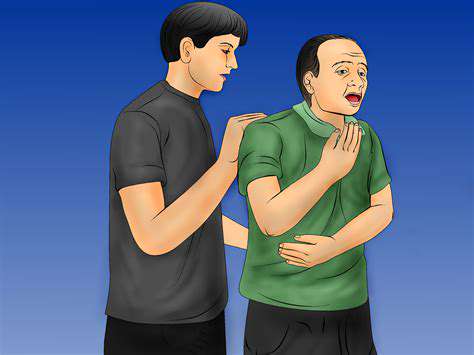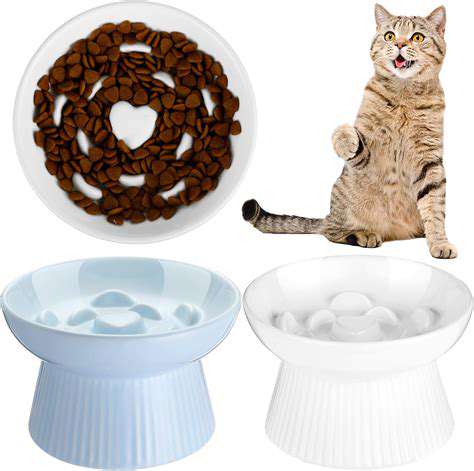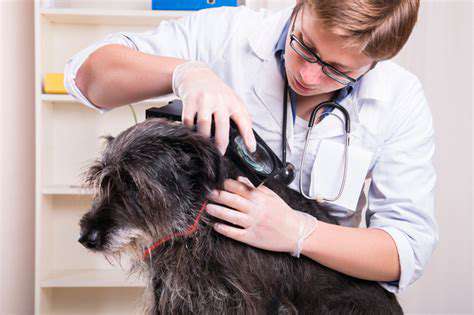Common Ferret Illnesses
Symptoms of Respiratory Infections
Respiratory infections in ferrets often start subtly but can escalate quickly. You might notice your ferret sneezing more than usual or producing nasal discharge that changes color as the infection progresses - starting clear but potentially turning yellow or green. What many owners miss are the secondary signs like reduced playfulness or disinterest in favorite treats, which can signal something's wrong before more obvious symptoms appear.
Watch for breathing changes particularly after activity. Healthy ferrets recover quickly from exertion, while infected ones may show prolonged rapid breathing or audible wheezes. The bedding around their nose might show wet spots from persistent discharge - a clear warning sign worth checking daily.
Causes of Respiratory Infections
These infections don't appear out of nowhere. In multi-ferret households, viruses spread like wildfire through shared toys or grooming sessions. Bordetella bacteria, the same culprit behind kennel cough in dogs, poses particular risk in homes with both species. Drafty cages near windows or exposure to cigarette smoke create perfect conditions for respiratory issues to take hold.
New additions to your ferret family should always undergo quarantine. That adorable ferret you just brought home could be carrying pathogens without showing symptoms yet. A two-week separation period with separate feeding utensils gives time for any hidden illnesses to surface.
Diagnosis of Respiratory Infections
Veterinarians don't just glance at symptoms - they perform detective work. The stethoscope reveals subtle lung changes owners can't detect. Some clinics use tiny endoscopes to examine nasal passages, while others might take X-rays to check for pneumonia. That greenish discharge? Its color alone doesn't confirm bacterial infection - lab tests determine if antibiotics will help.
Treatment Options for Respiratory Infections
Recovery isn't just about medications. Creating a steamy bathroom environment (by running hot showers) helps loosen congestion. Hand-feeding meat baby food maintains nutrition when appetite falters. Critical point: Never use human cold medicines - their ingredients can kill ferrets. Instead, vets might prescribe ferret-safe bronchodilators or nebulizer treatments for severe cases.
Prevention Strategies for Respiratory Infections
Prevention starts with cage placement - avoid drafty areas but ensure good airflow. Annual distemper vaccinations are non-negotiable as this deadly virus often starts with respiratory signs. Pro tip: Wash bedding at 140°F (60°C) to kill most respiratory pathogens. For multi-ferret homes, implement a sick bay area where affected individuals can recover without exposing others.
Prognosis and Recovery
Most ferrets bounce back within 2-3 weeks with proper care, but some develop chronic ferret asthma requiring lifelong management. Watch for relapse signs like renewed lethargy - sometimes infections resurge after seeming resolved. Permanent lung damage can occur if treatment starts too late, making early action crucial.
Dental Problems: Common Issues and Prevention
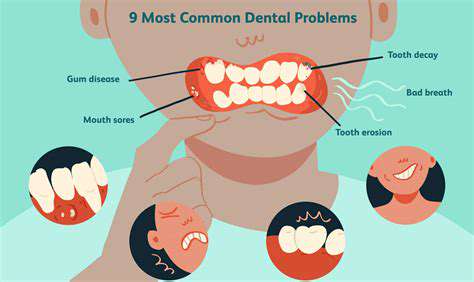
Common Dental Problems: Cavities
Ferret teeth differ from humans - their sharp carnivorous teeth rarely get true cavities but suffer from different issues. The real danger? Tartar buildup at the gumline that leads to painful gingivitis. You'll notice brownish deposits, especially on back teeth, and possibly foul breath before your ferret shows eating discomfort.
Prevention focuses on diet - crunchy kibble helps scrape teeth clean, while soft foods accelerate plaque buildup. Some owners train ferrets to accept tooth brushing using poultry-flavored pet toothpaste. Annual dental cleanings under anesthesia prevent advanced periodontal disease.
Gum Disease: Gingivitis and Periodontitis
Reddened gums that bleed easily signal trouble. Left untreated, infection spreads to tooth roots, causing abscesses that may require tooth extraction. Warning sign: Your ferret paws at its mouth or develops a lopsided chewing motion. Advanced cases can lead to bone infections affecting the entire jaw.
Tooth Sensitivity
While less common than in humans, worn enamel from chewing cage bars creates sensitivity. More concerning are fractured teeth from falls or fights that expose sensitive pulp. These require immediate veterinary attention to prevent infection spreading to the jawbone.
Dental Trauma: Injuries and Accidents
Ferrets' adventurous nature leads to broken teeth. A chipped canine might not seem urgent but leaves the pulp vulnerable. Emergency protocol: Save any tooth fragments in milk and get to a vet within an hour - some can be reattached. After trauma, switch to softened food until healing occurs.
Oral Cancer: Early Detection and Prevention
Mouth cancers often first appear as non-healing sores on gums or tongue. Monthly home checks should include lifting lips to inspect all oral surfaces. Risk increases with age, making biannual veterinary oral exams crucial for seniors. Any lump persisting over two weeks warrants biopsy.
Understanding ferret psychology helps interpret their pain signals, as they instinctively hide weakness. Subtle changes like reduced grooming or altered sleep positions often precede obvious symptoms.
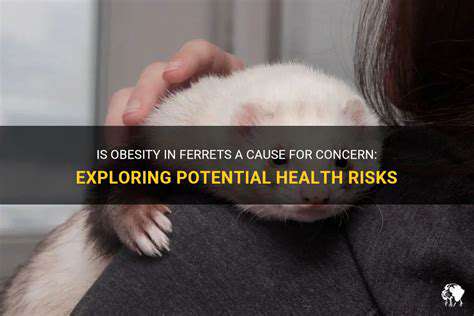
Parasites and Skin Conditions: External and Internal Threats
External Parasites
Flea infestations cause more than itching - severe cases lead to life-threatening anemia. Never use dog flea products - pyrethrins found in many canine treatments are lethal to ferrets. Instead, ask your vet for ferret-safe options like selamectin.
Internal Parasites
Heartworm isn't just a dog problem - mosquitoes transmit it to ferrets too. Monthly prevention is far safer than treatment, as the small ferret heart tolerates worms poorly. Intestinal parasites often come from prey items; freeze feeder rodents for 48 hours before offering.
Skin Conditions: Beyond Parasites
Adrenal disease, common in middle-aged ferrets, causes symmetrical hair loss starting at the tail. Unlike parasite-related hair loss, adrenal cases show no scratching or skin irritation. Diagnosis requires blood tests and ultrasound, with treatments ranging from implants to surgery.
Diagnosis and Treatment
Skin scrapings hurt - ask your vet to numb the area first. For chronic ear mites, revolution treatment often works better than ear drops that stress ferrets. Always treat all household ferrets simultaneously to prevent ping-pong reinfection.




